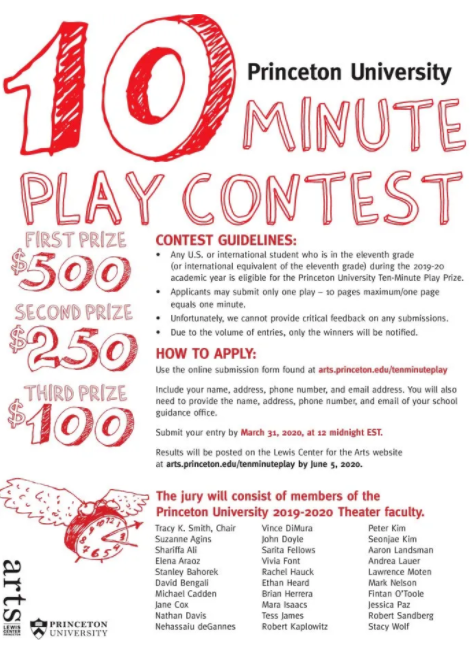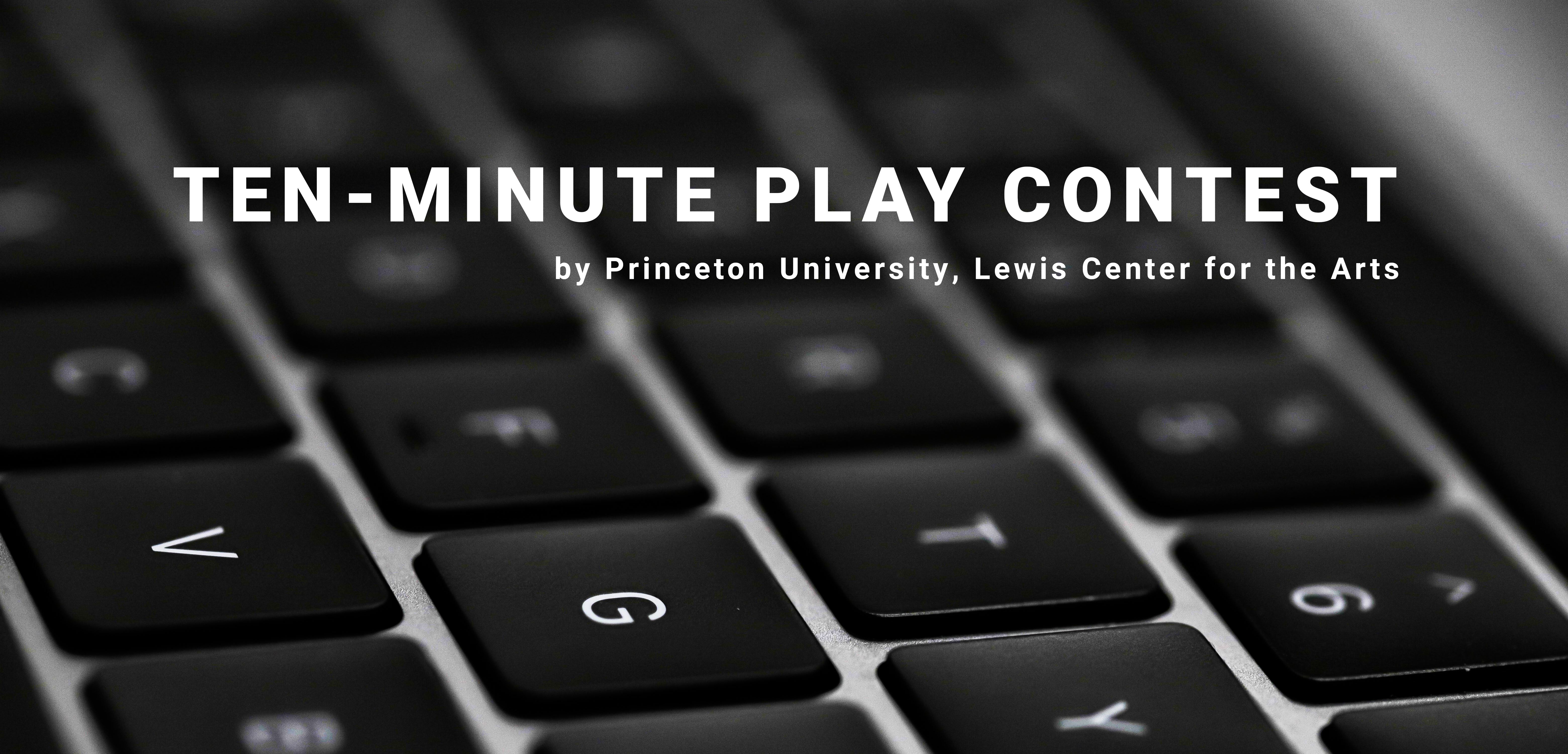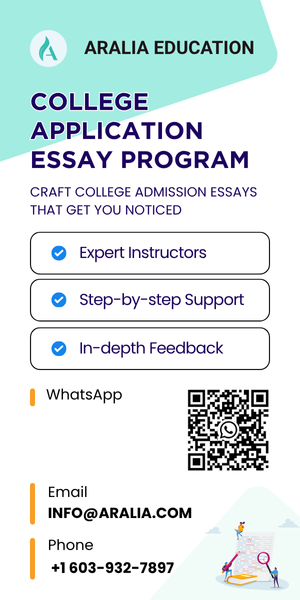The Princeton Ten-minute Play Contest is hosted by the Lewis Art Center of Princeton University. The judging committee of the annual competition is comprised of faculty and staff from the Program in Theater of Princeton University. They are all members of Princeton University.

Introduction about the Princeton University Ten-minute Play Contest
The annual list of awards will be announced on the official website of Princeton University. It’s a great opportunity for students to have recognition from an Ivy League. Each contestant submits a script with the length of up to 10 pages (each page corresponds to approximately 1 minute in length). Past award-winning script works have various themes, including comedies, sci-fi short works, thrillers, etc. You can directly read the excellent works of the previous competition on the official website of the competition.
Important Information
Official website: Princeton University Ten-minute Play Contest
Submission Deadline: April 1, 2025
Eligibility for this annual competition:
- U.S. domestic or international students studying in the eleventh grade
- International students in the equivalent of eleventh grade in the US
Competition awards
The first prize is US$500, the second prize is US$250, and the third prize is US$100.
Past winners (from 2020)
1st place: Waffle houseafflehouse by Frances McKittrick
2nd place: Train to Anywhere by Serena Suson
3rd place: Dead Serious by Adam Soukup
Honorable Mentions:
Snake Story by Maia Siegel
The Cherry by Jordan Ferdman
Aralia Education hereby launches a drama writing competition project to help you realize and further advance your dreams to compete in the Princeton University Ten-minute Play Contest!
One of the most exciting and popular forms of writing in the world today is drama writing. Specific examples can be writing for the big screen (film and TV) or stage play. Drama writing combines communication and imagination in an innovative way. Drama writing takes into consideration the narrative method, the lighting, camera angle, and stage instructions for the actor. Drama writing is also considered to be one of the most challenging types of creative writing.
In this eight-week project, students will learn how to create a stage script and create a ten-minute/ten-page script. While developing the narrative and theme, they also consider the needs of the audience and the needs of the actors/performers. By learning a series of visual narrative examples, students will learn how to write in this new form. We will also review scenes from performance plays and TV shows, character close-ups, and rhythm (interval and intonation). The purpose of this is to understand dialogues, the author’s intentions, and purpose.
By the end of the course, students will create a finished script that can participate in a scriptwriting contest. The competitions include:
- Princeton University Ten-Minute Play Contest (this competition is aimed at U.S. 11th-grade students and international students in this grade),
- Blank Theater Young Playwrights Festival Competition
- Young Playwright New Voices Competitions.
All works will be also published on two blogs, Haringey Unchained and the People’s Republic of Creativity. You can also submit your work to other competitions.
In this eight-week Drama Writing Competition, students will learn how to create a stage script and create a ten-minute/ten-page script. While developing the narrative and theme, they also consider the needs of the audience and the actors/performers’ needs. By learning a series of visual narrative examples, students will learn how to scriptwriting. We will also review scenes from performance plays and TV shows to understand dialogue, character close-ups, and rhythm (interval and intonation)











